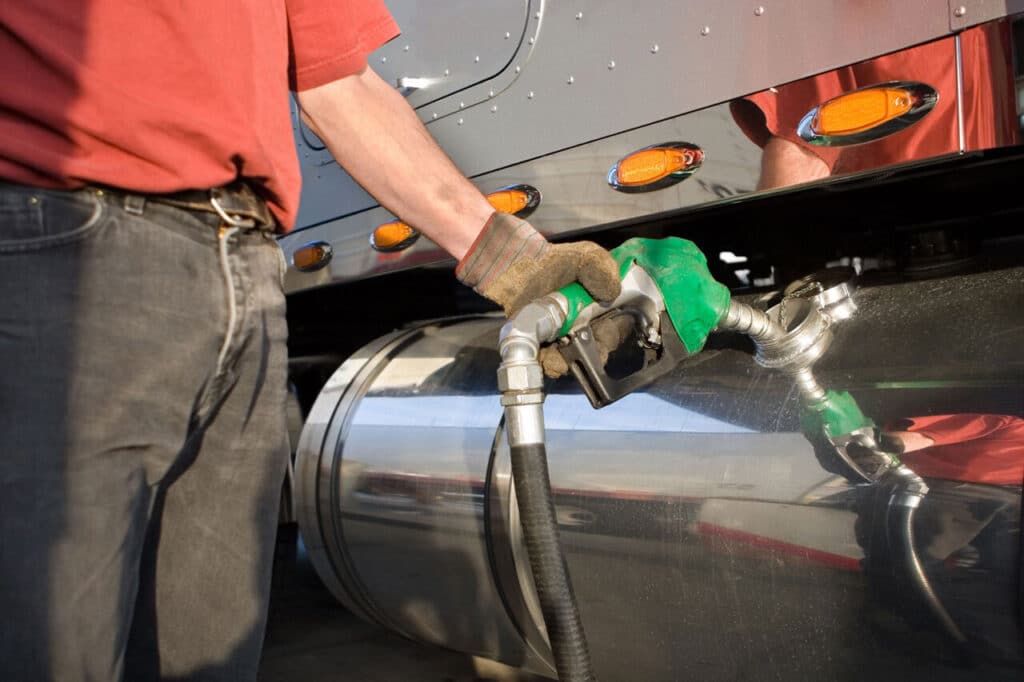The performance and longevity of your machinery are intrinsically linked to the quality of diesel fuel it consumes. Diesel purity goes beyond meeting standards—it unlocks your equipment’s full potential. Poor diesel quality can compromise performance, increase maintenance costs, and lead to mechanical failures. This article delves into the vital world of diesel fuel, highlighting the significance of testing diesel fuel quality and maintaining purity for optimal equipment performance.
Understanding Diesel Quality: The Key to Reliable Performance
Cleanliness and Particle Content
Contaminants like dirt, rust, and particulates can harm engine efficiency. These impurities clog fuel filters, damage injectors, and reduce overall machinery reliability. Regularly checking diesel fuel quality safeguards engine components. Routine inspections and robust filtration systems ensure the purity of diesel, meet required standards, and protect your equipment.
Chemical Composition
Diesel fuel is a complex blend of hydrocarbons, and the right chemical balance is essential for optimal combustion. Additives are pivotal in maintaining diesel purity and enhancing overall diesel fuel quality. These additives improve lubricity, reduce harmful emissions, and enhance cold-weather performance.
The Importance of Testing Diesel Fuel Quality
Preventive Maintenance
Regular diesel quality testing is the cornerstone of any preventive maintenance plan. Identifying and addressing issues early helps avoid costly repairs, minimizes downtime, and prolongs the lifespan of your equipment.
Identifying Contaminants
Understanding common contaminants—such as water, microbes, or organic compounds—is critical. Water, for example, can lead to microbial growth and corrosion, compromising diesel purity and engine health. Knowing how to test diesel fuel quality effectively helps detect and address these issues before they escalate.
Benefits of Regular Diesel Fuel Quality Testing
1. Enhanced Equipment Performance
Regular testing ensures your machinery operates with high-quality fuel, resulting in smoother combustion, improved power output, and increased efficiency.
2. Prevention of Costly Repairs
Identifying contaminants like dirt, rust, or water early prevents damage to engine components such as injectors and filters, reducing repair costs and unexpected downtime.
3. Prolonged Equipment Lifespan
Clean, high-quality diesel minimizes wear and tear, significantly extending the lifespan of your machinery and maximizing your investment.
4. Improved Fuel Efficiency
Pure diesel ensures efficient combustion, reducing unnecessary fuel consumption and optimizing operational costs.
5. Compliance with Industry Standards
Routine testing ensures your fuel meets regulatory requirements, helping avoid penalties or operational restrictions.
6. Environmental Benefits
High-quality diesel reduces harmful emissions, contributing to sustainability goals and compliance with environmental regulations.
7. Increased Operational Reliability
Clean diesel lowers the risk of breakdowns, ensuring smoother and uninterrupted operations across all equipment types.
How to Test Diesel Fuel Quality: From DIY Techniques to Advanced Methods
DIY Testing Techniques
- Visual Inspections: Check for unusual colouration, sediment, or water droplets. These are clear indicators of contamination.
- Water Separation: Use a transparent container to detect water at the bottom of the diesel. This method helps identify one of the most common contaminants.
- Basic Filtration: Pass a small diesel sample through a filter to check for particulates. Regular filtration maintains diesel purity and protects your engine from contaminants.
Advanced Testing Technologies
- Fuel Quality Analyzers: Portable analyzers provide quick, on-site testing of diesel purity and composition. These tools offer immediate insights, helping identify contaminants and assess overall fuel quality.
- Spectroscopy: Spectroscopy offers a deeper analysis of diesel fuel composition. This technology can provide detailed insights into the chemical makeup of fuel, helping to identify specific contaminants and their concentrations.
Ensuring the purity of diesel is crucial for the peak performance and longevity of machinery. Regular testing, from simple visual inspections to advanced spectroscopic analysis, is key to maintaining high-quality diesel fuel. In this endeavour, partnering with a trusted fuel provider like Fuel Me can make a significant difference. Fuel Me ensures that the diesel you use is of the highest quality, adhering to stringent purity standards. With Fuel Me, you gain the peace of mind that comes from knowing your fuel is clean, efficient, and conducive to the optimal performance of your equipment. Embrace the power of pure diesel with Fuel Me’s commitment to quality, and witness the transformative impact on your machinery’s efficiency and lifespan.
FAQs (Frequently Asked Questions)
1. How often should diesel fuel be tested?
The frequency of testing depends on the application and storage conditions. For high-usage machinery or fleets, test diesel fuel monthly. For backup generators or long-term storage, quarterly testing is recommended to ensure diesel purity and identify contaminants early.
2. What steps can be taken to improve diesel fuel quality?
Ensure proper storage by using clean, water-free tanks. Invest in high-quality additives to enhance lubricity, prevent microbial growth, and improve cold-weather performance. Regular filtration and partnering with a reliable fuel supplier also help maintain diesel purity.
3. How does weather affect diesel fuel quality?
Cold weather can cause diesel to gel, clogging filters and reducing flow. Water condensation in tanks is more common in fluctuating temperatures, increasing the risk of microbial growth. Using winter-grade diesel or anti-gel additives can help maintain diesel quality in extreme conditions.
4. Are there any DIY methods for diesel fuel testing?
Yes, several DIY methods can help you test diesel fuel quality:
- Visual Inspection: Look for unusual colouration, sediment, or water droplets.
- Water Separation Test: Use a transparent container to detect water.
- Basic Filtration: Pass diesel through a filter to detect dirt or particulates.
These methods provide initial insights but should be supplemented with professional testing for accuracy.
5. What should I do if my diesel fuel fails a quality test?
Take immediate action:
- Remove contaminants using advanced filtration systems.
- Drain and clean storage tanks if water or microbial growth is present.
- Treat the fuel with additives to address specific issues, like microbial contamination or poor lubricity.
If the fuel is beyond salvage, consult your supplier or dispose of it according to environmental regulations.
6. Is there a difference in fuel quality requirements for different industries?
Yes, fuel quality requirements vary by industry:
- Construction and Heavy Machinery: Use ultra-low sulfur diesel (ULSD) to protect sensitive engines and meet emission standards.
- Agriculture: Often uses dyed diesel for tax-exempt purposes, but maintaining quality and purity is critical to prevent equipment damage.
- Transportation and Fleets: Require high-grade diesel with additives to optimize fuel efficiency and meet emissions regulations.
Understanding your industry’s specific needs is essential when selecting and testing diesel fuel.
Embrace the Power of Pure Diesel
Maintaining diesel fuel quality is vital for the efficiency, reliability, and longevity of your equipment. Combining routine diesel purity tests with proper storage and trusted fuel providers ensures your machinery operates at peak performance. Invest in regular testing to unlock the full potential of your equipment and contribute to a more sustainable and efficient operation.














































